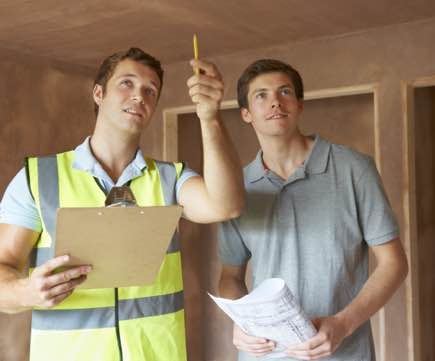Introduction:
When it comes to maintaining our homes, one of the most important aspects that we tend to overlook is conducting regular inspections. Home inspections are critical in identifying potential problems and addressing them before they become major issues. While most homeowners prefer to hire professional home inspectors to carry out these inspections, some prefer to take on the task themselves. The question is, can you do DIY Home Inspections: Can You Do It Yourself?
In this article, we’ll be discussing everything you need to know about DIY home inspections, including what they involve, the benefits and drawbacks, and some tips on how to conduct them effectively.
What are DIY Home Inspections?
DIY home inspections refer to the process of inspecting your home without the help of a professional inspector. This can involve a thorough examination of the entire house, including the roof, foundation, walls, windows, doors, plumbing, electrical systems, and more.
DIY home inspections can be carried out by any homeowner who wants to ensure that their home is in good condition and identify any potential problems before they become major issues. While it may seem like an easy task, DIY home inspections require some level of knowledge and skill, which is why many homeowners opt to hire professional inspectors.
Benefits of DIY Home Inspections
Here are some benefits of conducting your own home inspections:
- Cost-effective: One of the most significant advantages of conducting your own home inspections is that it can save you money. Hiring a professional inspector can be quite expensive, and by doing it yourself, you can cut down on costs.
- Regular inspections: Conducting regular home inspections can help you identify potential problems early on, and this can save you a lot of money in the long run. You’ll be able to address issues before they become major problems, which can be costly to fix.
- Control: By conducting your own inspections, you have more control over the process and can ensure that everything is done to your satisfaction. You can take your time and examine every aspect of your home without feeling rushed.
Drawbacks of DIY Home Inspections
While there are benefits to conducting your own home inspections, there are also some drawbacks to consider:
- Lack of expertise: Home inspections require a certain level of knowledge and skill, and if you’re not experienced in this area, you may miss critical issues that a professional inspector would identify.
- Time-consuming: DIY home inspections can be quite time-consuming, especially if you’re doing it for the first time. It can take several hours or even days to complete a comprehensive inspection.
- Limited resources: Professional inspectors have access to specialized tools and equipment that may not be available to homeowners. This can make it difficult to identify certain issues that require specialized equipment.
Tips for Conducting DIY Home Inspections
If you’ve decided to conduct your own home inspections, here are some tips to help you do it effectively:
- Use a checklist: Create a comprehensive checklist of all the areas you need to inspect, and use it as a guide to ensure that you don’t miss anything.
- Research: Before you begin your inspection, do some research to understand what to look for and how to identify potential issues.
- Take your time: Don’t rush through the inspection process. Take your time and thoroughly examine each area of your home.
- Consult a professional: If you’re unsure about anything or if you identify a potential problem, it’s always best to consult a professional inspector for their opinion.
FAQs
How often should I conduct a home inspection?
It’s recommended to conduct a home inspection at least once a year. However, if you live in an older home or in an area prone to severe weather conditions, you may need to conduct inspections more frequently.
What areas of my home should I inspect?
You should inspect all areas of your home, including the roof, foundation, walls, windows, doors, plumbing, electrical systems, and appliances.
Do I need any specialized equipment for DIY home inspections?
While specialized equipment can be helpful, it’s not always necessary. You can conduct a thorough inspection with basic tools such as a flashlight, ladder, and a camera.
Conclusion:
DIY home inspections can be an effective way to save money and identify potential issues early on. However, it’s important to remember that home inspections require a certain level of knowledge and skill, and if you’re not experienced in this area, it may be best to hire a professional inspector. By following the tips outlined in this article, you can conduct a comprehensive home inspection and ensure that your home is in good condition. So, can you do DIY Home Inspections: Can You Do It Yourself? The answer is, it depends on your level of expertise, time, and resources.




